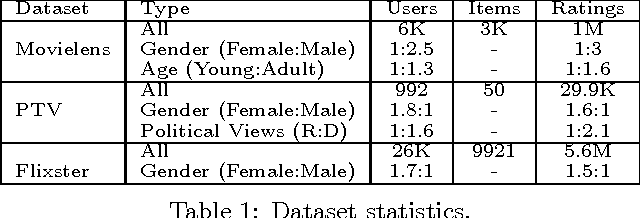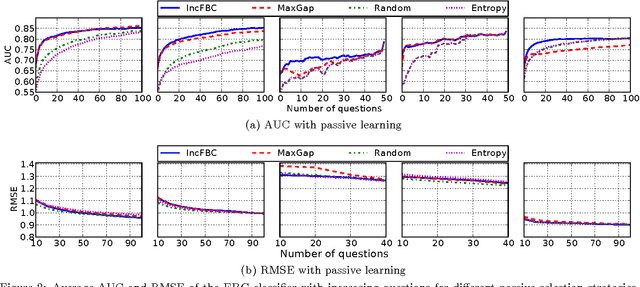Recommending with an Agenda: Active Learning of Private Attributes using Matrix Factorization
Paper and Code
Jul 30, 2014



Recommender systems leverage user demographic information, such as age, gender, etc., to personalize recommendations and better place their targeted ads. Oftentimes, users do not volunteer this information due to privacy concerns, or due to a lack of initiative in filling out their online profiles. We illustrate a new threat in which a recommender learns private attributes of users who do not voluntarily disclose them. We design both passive and active attacks that solicit ratings for strategically selected items, and could thus be used by a recommender system to pursue this hidden agenda. Our methods are based on a novel usage of Bayesian matrix factorization in an active learning setting. Evaluations on multiple datasets illustrate that such attacks are indeed feasible and use significantly fewer rated items than static inference methods. Importantly, they succeed without sacrificing the quality of recommendations to users.
 Add to Chrome
Add to Chrome Add to Firefox
Add to Firefox Add to Edge
Add to Edge